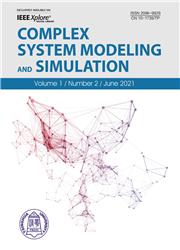Large-Scale Expensive Optimization with a Switching Strategy
引用次数: 0
Abstract
Some optimization problems in scientific research, such as the robustness optimization for the Internet of Things and the neural architecture search, are large-scale in decision space and expensive for objective evaluation. In order to get a good solution in a limited budget for the large-scale expensive optimization, a random grouping strategy is adopted to divide the problem into some low-dimensional sub-problems. A surrogate model is then trained for each sub-problem using different strategies to select training data adaptively. After that, a dynamic infill criterion is proposed corresponding to the models currently used in the surrogate-assisted sub-problem optimization. Furthermore, an escape mechanism is proposed to keep the diversity of the population. The performance of the method is evaluated on CEC'2013 benchmark functions. Experimental results show that the algorithm has better performance in solving expensive large-scale optimization problems.具有切换策略的大规模昂贵优化
科学研究中的一些优化问题,如物联网的鲁棒性优化和神经结构搜索,在决策空间上是大规模的,客观评价的成本很高。为了在有限的预算下得到大规模昂贵优化问题的较好解,采用随机分组策略将问题划分为若干低维子问题。然后使用不同的策略自适应地选择训练数据,为每个子问题训练代理模型。然后,针对代理辅助子问题优化中常用的模型,提出了动态填充准则。此外,还提出了一种逃逸机制,以保持种群的多样性。在CEC 2013基准函数上对该方法的性能进行了评价。实验结果表明,该算法在求解昂贵的大规模优化问题方面具有较好的性能。
本文章由计算机程序翻译,如有差异,请以英文原文为准。
求助全文
约1分钟内获得全文
求助全文

 求助内容:
求助内容: 应助结果提醒方式:
应助结果提醒方式:


